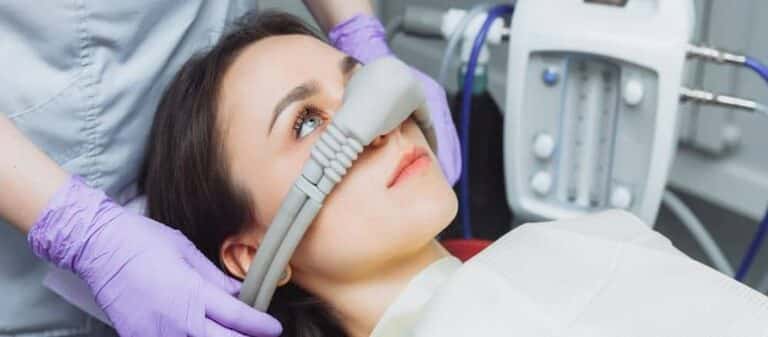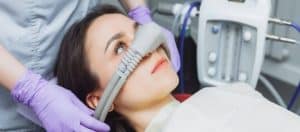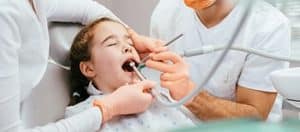Vising a dentist can trigger moderate anxiety or fear in any person. But for some, it creates severe mental, physical, and emotional obstacles that even a simple dental check-up becomes impossible.
For some of these cases, sedation dentistry can be a perfect solution. However, there are many questions and fear associated with this practice. It sometimes prevents people in need of dental care from getting sedation dentistry.
This blog on sedation dentistry will inform how sedation dentistry can help create a positive dental visit experience. So, please stay with us.
Sedation dentistry is what?
Dental sedation eases your dental anxiety and keeps you at ease while doing dental work. It emphasizes delivering a happy dental experience so that you can go to the dentist quickly and receive the essential care without any stress.
Dentistry under sedation is a safe procedure that can meet the demands of patients of all ages. Typically, dental professionals advise sedation to treat the following issues:
- Dental Anxiety
- Gang reflexes that are sensitive
- Extremely sensitive teeth
- A severe phobia of needles
- Previous traumatic dental experiences
- A decrease in the sensitivity to local anaesthesia
- Movement handling issues
- Patients with special needs

Which Sedation Methods Are Used In Dental Care?
Depending on the patient’s needs, various forms of sedation are used in dental care procedures. Additionally, the patient’s health status, anxiety level, and dental care they receive affect the dosage and type of medications.
The following are the sedatives most frequently used for dental procedures:
-
Nitric Oxide
The most popular form of sedation used by dentists is nitrous oxide. Within three to five minutes of inhalation, it begins to work. The dosages are under your dentist’s control. After the dental procedure, it is finally removed from your body using pure oxygen. Following the process, you will quickly regain awareness and be able to operate your car securely.
-
Intravenous (IV) Sedation
In dentistry, IV sedation is the most popular type of conscious sedation. In this operation, an IV line gives the drug straight into the blood. You’ll have little to no memory when you go sleep. Your dentist will carry out all the procedures without any distractions. You probably don’t remember discomfort, fear, sound, or smell when your senses return. Your anxiety for the next dentist appointment will decrease due to the great experience you receive in sedation dentistry.
-
Oral Sedation
It involves taking pills containing sedative drugs. You will receive it from your doctor an hour before the dental procedure begins. However, they use liquid syrup if the patient is a child or a special care need patient.
You’ll experience light-headedness and a strong tendency to fall asleep after using this technique. But if necessary, you can talk to your doctor. It will take some time for the sedative effect to completely wear off. Therefore, the dentist advises getting a responsible adult to drive you home after surgery.
-
Local Anaesthesia
Local anaesthesia gives unconscious sedation. It is applied to patients with severe dental fear. A patient who gets local anaesthesia loses consciousness completely. Additionally, a dentist must be certified and trained to decide on the dosage of local anaesthesia before giving it to a patient.
What to expect before being sedated
You will meet with your dentist for a consultation. Your dentist will examine your oral health during this session and talk to you about any dental phobias or fears you may have. Additionally, your dentist will inquire about your current health status, including any medications you may be taking.
They will discuss the sedation alternatives and recommend the most appropriate one once he has all the information. You can now clarify any doubts you may have about sedation dentistry or ask any queries you have.
Dentists advise patients to avoid eating and drinking for at least six hours before getting sedated. Emptying your stomach is essential because food may cause complications.
Additionally, don’t forget to let your dentist know if you are currently on any blood thinners. Your dentist may advise against taking these medications for a few days before the start of the dental procedure.
What to expect when under sedation?
Your dental specialist will give you sedatives to calm your nerves before starting the dental work. Depending on the severity of your anxiety level, the dentist may also use sedation in combination with local anaesthesia to numb your teeth and gums.
After receiving sedatives, you can expect to fall asleep or become drowsy with no memory. However, it allows your dentist to complete his treatment work with full cooperation from your side.
What to anticipate following sedation dentistry?
Going to the dentist’s office with a dependable friend or family member will be beneficial. It is necessary since your sedated medicine effect will not wholly wear off, and your dentist may not allow you to drive. But you can still drive a vehicle on your own if the dentist sedates you with nitrous oxide.
Contact A Local Professional Sedation Dentist Today
Bay Street Dental Group’s skilled sedation dentists are the only choice if you are afraid of going to the dentist. Contact us at (03) 9646 2577 or email [email protected] to receive a comfortable dental treatment that resolves your issue.
Frequently Asked Questions
How long does tooth sedation typically last?
Patients with dental fear or who need prolonged treatment procedures require dental sedation. They’ll have to remain still for extended periods. Additionally, since children typically can’t stay still throughout lengthy operations, it is safe for them. But a lot of people often wonder about the safety of this technique.
You’ll spend some time in the cabinet recovering after the procedure. Generally, dental sedation starts to wear off 30 minutes after the procedure. However, you may feel sleepy or dizzy for a few hours afterwards. Therefore, arriving with a responsible driver and companion will be helpful.
Generally, the wear-off time depends on the type and dose of sedation. So, you can call our expert to know more.
What to do if sedation dentistry hurts?
Sedation dentistry prevents the feeling of pain. Your dentist may use sedation and anaesthesia to make you comfortable and relaxed throughout the treatment. It has a high success rate. Most people feel good following treatment and leave the dentist’s office with little to no memory of the discomfort or pain they experienced.
When under sedation, am I able to hear?
To determine whether a sedated patient is conscious, dentists, nurses, and other medical personnel frequently speak with them. It indicates that individuals can hear even if they are unable to reply. While sedated, some people do, however, have hazy memories. They will say that they have heard voices, but they cannot recall their talks with the dentist or other staff.












